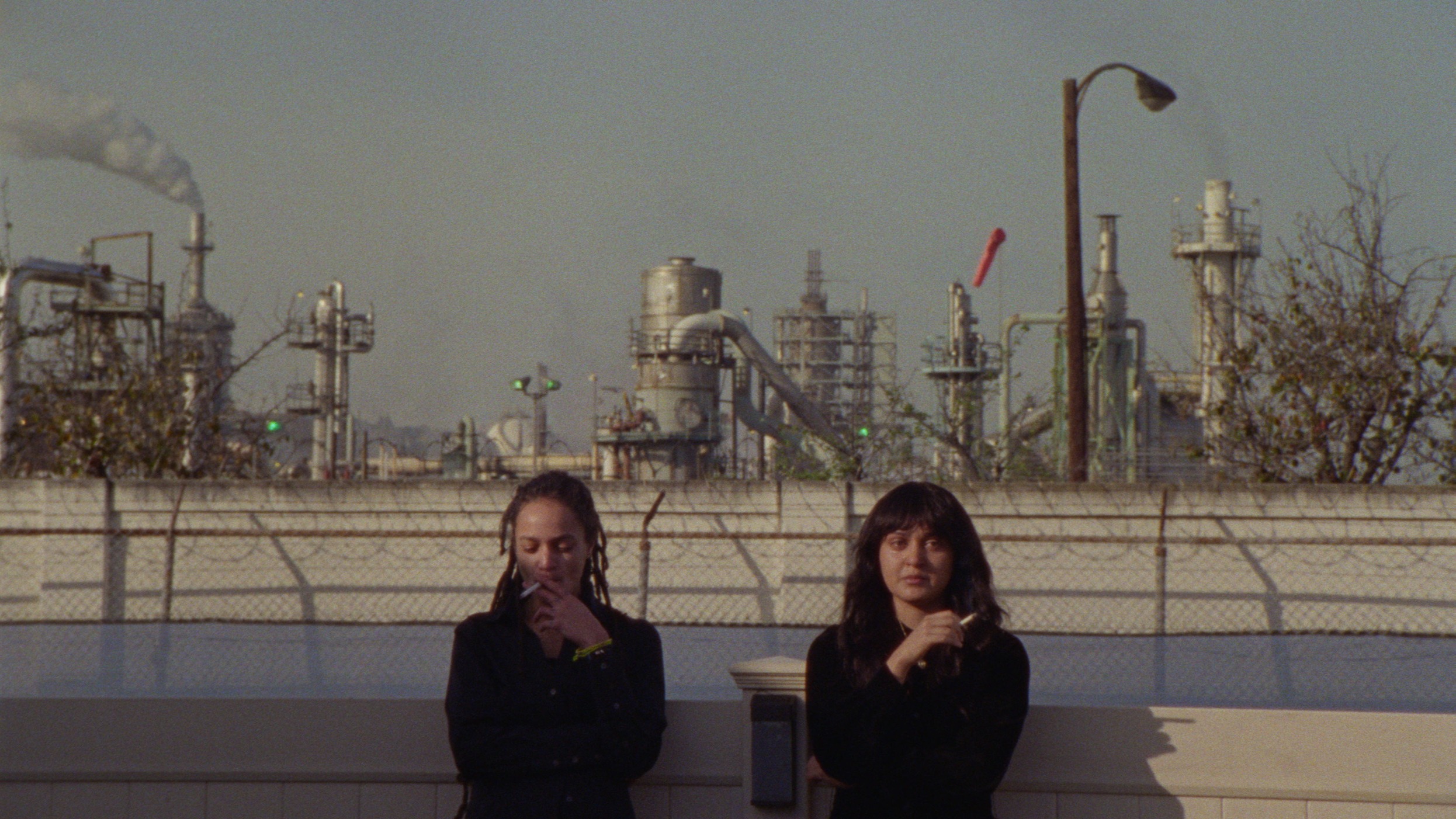Anti-Imperialism, Anti-Classism, Anti-Patriarchy, Anti-Capitalist. Oppositional Media has been a mainstay in cinema for a long time. There is a clear history of films being made to fight against the rich and powerful, or the hateful and powerful trying to take advantage of people for their own gain. Now, while a lot of that media involves real footage, and documentary production, there are many times where oppositional cinema is in the form of fiction. These films get us in the mind of a familiar situation to show us how things are. How to Blow Up a Pipeline does this in the most explosive way.

Many of us who aren’t bootlickers or blind will agree that the damage from fossil fuels and fracking is near irreversible. But most times these rich and powerful companies have regular media in their pocket to drown out the cries for change with cries for conserving their place. Climate change and the oil industry have been a popular target for cinema in the past though, the most famous in recent memory was the poorly conceived and received Don’t Look Up, Adam McKay’s political comedy about the political and media world not accepting the idea of near doom just to continue their cycle of power. But where Don’t Look Up was received as overly preachy, too narcissistic, and sometimes masturbatory in the way it took its position as not denying climate change, How to Blow Up a Pipeline is small, personal, direct to the message, and honestly real.
Imagine Ocean’s Eleven, yet instead of getting a casino’s vault worth, it is blowing up a pipeline in the middle of Texas. The story starts with a fast five-minute introduction to characters of different backgrounds and ideologies coming together in a small shack to make bombs then plant them on a pipeline. Sounds simple enough but intermittent with this main story, each character’s background is explored, each of them breaking through their initial archetypes to reveal what they believe in, how they joined the group, and most importantly, why this is personal. Some link this to a need to make change, some to getting revenge on the oil companies, and some relate their part to freedom. The story flows so nicely together, each character gets more than enough time to make their endings feel justified and correct. The overall story and its themes are powerful, with the direction and editing of the film making this feel less like just something that could happen, but something that should.

Many right leaning publications are already calling for warnings about the film, saying that some areas are seeing it as a ‘dangerous call to action’, as if this film is comprised of every step meticulously explaining how each and every audience can and should go blow up a pipeline. It is not that. The main purpose of the film is to make this global catastrophe personal. Every character in the film isn’t there because they started at a point where they knew a shakedown of society’s view of the oil industry needs to happen, they started in a personal place. Xochitl played by Ariela Barer is incredible here, she is the ringleader of the operation, and the driving force of the story, her determination and her personal objective in trying to make a difference after her mother passes is what drives the ‘heist’ forward. Every character has a reason, someone got cancer from toxic oily air, another had their livelihood and home taken to build more pipelines. Another standout role was Michael (Forrest Goodluck), who’s motivation is being tired of the inaction of his community, which is being taken over by oil companies and their workers. The film works so well in many ways, as a ‘heist’, as an eco-thriller, but mostly as opposition. An opposition to how we view climate change right now, as a worldwide issue we can do nothing about, but rather saying that to shake the system, we need to make this personal, because it probably already is.

So, while I drown out my Letterboxd diary with Dreamworks movies hoping that the FBI or CIA take me off of their much more unfortunate watchlist for rating this movie so highly I will end this saying; this needs to be watched. A problem this big that doesn’t always get appropriate cinema coverage has finally gotten some really excellent cinema coverage. I don’t know if we will ever get a film this personally driven again, but here’s hoping we do.
4.5/5 STARS
